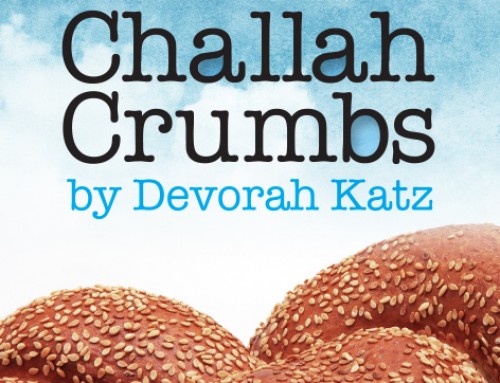To me the holiday of Succot is all about appreciation. According to our Sages, eating in a Sukkah for 8 days demonstrates our faith in God and His benevolence. We show God that we are willing to leave the security of our homes and live under his protection. We let God know that we appreciate all He has done for us to sustain us everyday.
As an adult, I have embraced the notion of appreciating everything I have and thanking God for those things. Each time I do, I feel more good things come my way.
This was not true when I was a child or even a young adult. I had a very hard time appreciating and being thankful for what I had. It seems I was not the only one.
Jeffrey Froh, a professor from Hofstra University, ran a study on how to increase gratitude and unselfish behavior in junior high and high school students. He based this study on the work of Robert Emmons of the University of California. Emmons had college students write a gratitude journal everyday. Emmon’s study was a success. Most college students reported an increase in happiness and overall gratefulness.
When Froh repeated the study with teenagers he found that the results were less than satisfactory. Teens did not seem improve in their ability to appreciate what they had and their happiness did not necessarily increase.
Although frustrated with the results, the study did shed light on areas of child and teen development.
Po Bronson in his book, Nurture Shock, says:
“For kids with a strong need for autonomy and independence, it might be demoralizing to recognize how much they are dependent upon grownups. They might already feel like adults are pulling all the strings in their lives-controlling what they eat, what they study, what they’re allowed to wear, and who they hang out with. And they’d rather feel self-reliant than beholden. Their sense of independence might be an illusion, but it’s necessary illusion for the psychological balance and future growth into genuine independence. Their lack of gratitude might be the way they maintain the illusion that they are in control of their own lives. Froh is considering that his intervention led those children to realize just how much of their lives depended on someone else’s whim or sacrifice. They didn’t feel happy that people were always there doing things for them. Instead it made them feel powerless.”
So is there a way to teach our kids to be grateful and appreciate all they have especially during this holiday of Succot?
There is still hope to teach your children how to be grateful. Michael C. Bradley, in his book, “Yes, Your Teen Is Crazy”, assures parents that your morals, values and ethics become an integral part of your child’s psychological makeup. If you have been imparting good values to your children they will stay with him for the rest of his life. During adolescence, “(they) may have put them (your values) in cold storage……..but they’re there and they will reappear in time”.
To teach our children the value of gratefulness we want to be sure to role model grateful behavior:
• Children need to see us being grateful for what we have. That might mean not running out to by the latest pocketbook and newest electronic gadget.
• Let them see you saying thank you to the postman, the store clerk, and your friends.
• Tell them, “I am so grateful to have you in my life.” If that is too corny for you, you can say, (when they come home from school), “It is good to see you.”
• Let them see you and your spouse thank each other. Thank your spouse for making dinner, for taking out the garbage, cleaning a clogged drain or for making the phone call to Aunt Ethel, something you really didn’t want to do.
• Don’t complain about all the things you don’t have.
• Write a gratitude journal and tell them about it in a non-confrontational, friendly way.
• Enjoy the beauty around you and point it out to your children. Sunsets, the sun shining on the snow, laughing babies and blossoming trees.
Understanding child/teen development and their limitations gives us insights into their frustrating but necessary behavior. Being grateful for what we have is one of the secrets of successful living. Fostering gratefulness in ourselves will enhance our family life and give our children the direction they need to cultivate their own happiness. What better time to start than Succot?







Leave A Comment